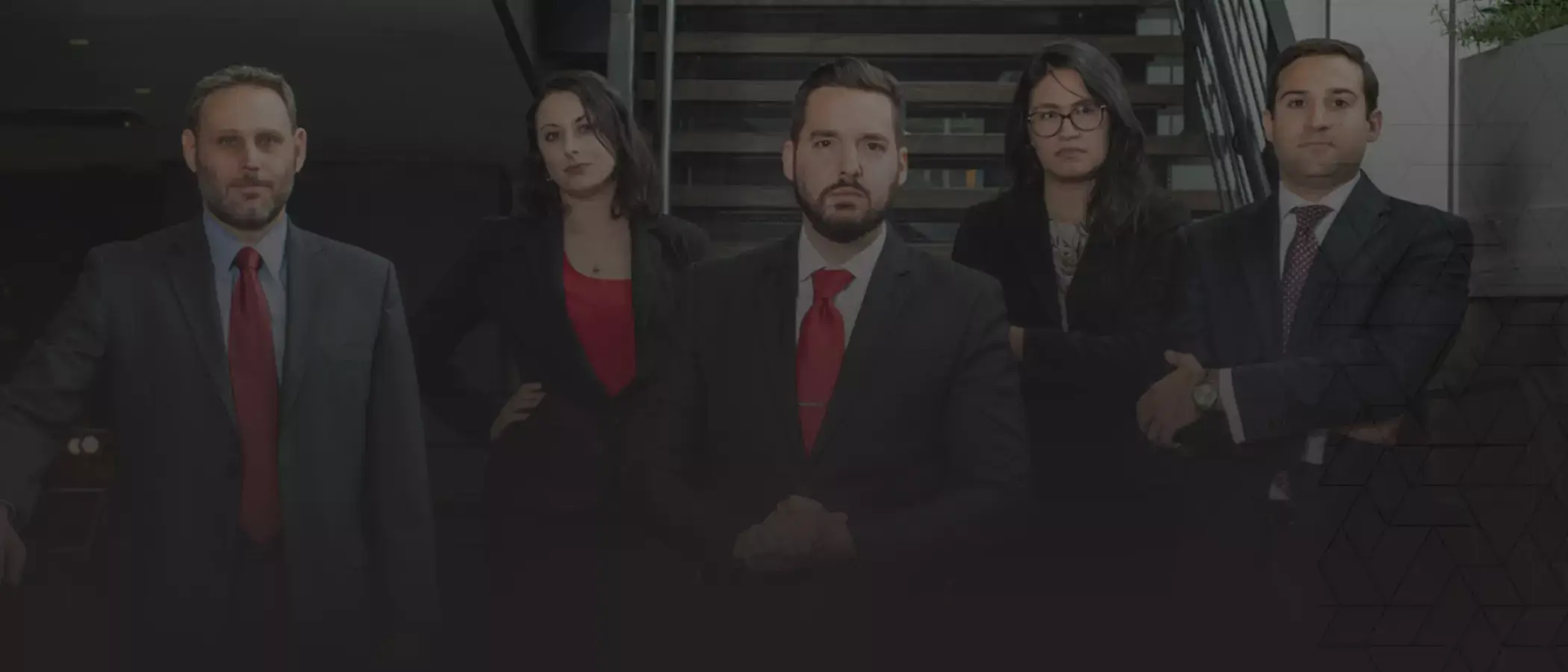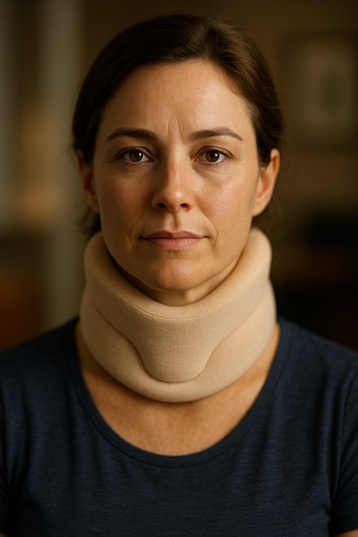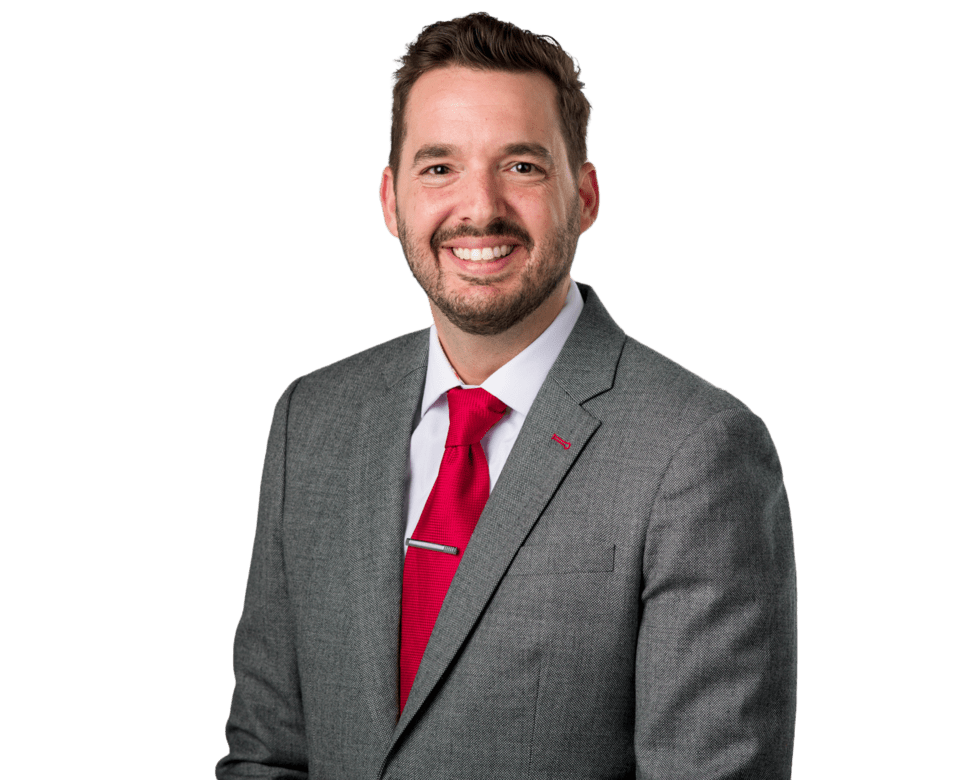
Voted Best Personal Injury Law Firm By Georgia Lawyers
Atlanta Neck Injury Lawyer
Client Testimonials
Matt Wetherington with Wetherington Law Firm,P.C. is the hardest working attorney I have ever worked with. He went above and beyond our expectations. Calls and emails are returned promptly and by Mr. Wetherington himself.
– Kelly
5 Stars is nowhere near enough to rate how awesome Matt and his colleagues were. They took my case even when I didn’t think there was anything we could do. I was in a bad situation at the time and Matt, Robert, and Sarah were there for me every step of the way.
– G.B.
I’m so grateful to Ben Levy and everything he did for me. He was truly dedicated to helping my case. Throughout the process, Ben was very thoughtful, responsive, organized, and made sure I was fully informed along the way.
– Shira
Our Locations
Free Injury Lawyer Consultation

Neck injury results from tragic events like car accidents, work injuries at construction sites or even assault and can be catastrophic. The pain makes it hard to work, enjoy time with your family, or even handle daily tasks. Expensive treatments like surgeries such as cervical fusion and months of physical therapy usually accompany them causing huge medical bills which can sometimes be denied by insurance companies. These events mess up one’s life especially if it’s a severe accident that stops one from working. A neck injury lawyer can file a personal injury lawsuit to pursue justice and compensation for injured victims against responsible parties.
When these life-changing injuries occur, insurance companies are not on your side. They may try to downplay your injuries, offer far less than you need, or blame you for the accident. If you wait too long, critical evidence like medical scans, accident reports, or witness statements can disappear making your claim less valuable. And under Georgia’s comparative negligence law (O.C.G.A. § 51-12-33), they can reduce your compensation if they claim you were even partly at fault. With only two years to file (O.C.G.A. § 9-3-33), now shorter under the 2025 Georgia Tort Reform Law, every day matters.
At Wetherington Law Firm, led by Georgia personal injury lawyer Matt Wetherington, our neck injury attorneys have helped neck injury victims across Fulton, DeKalb, Midtown Atlanta, Decatur and surrounding counties recover over $500 million in personal injury claims. We understand what you’re going through and we know how to win against insurers and big corporations. Call us at (404) 888-4444 or fill out our free consultation form today. Let us fight for you while you focus on healing.
Contact an Atlanta Neck Injury Lawyer
Get free case evaluation for neck injury claims in Atlanta and any part of Georgia
What are the Qualities to Look for in a Neck Injury Lawyer?

Choosing the right Atlanta neck injury lawyer is crucial for neck injury claims, as these cases involve complex liability disputes, significant damages, and resistant insurers, compounded by the 2025 Georgia Tort Reform Law’s procedural hurdles. A skilled neck injury attorney secures compensation for your medical costs, lost income, and suffering. Here are key qualities to seek:
- Expertise in Neck Injury Cases: Your neck injury lawyer must understand Georgia’s personal injury laws (O.C.G.A. § 51-1-2), medical complexities like whiplash or herniated discs, and the nuances of proving fault in accidents or premises liability.
- Compassion and Client Focus: Your neck injury attorney should empathize with your pain, whether you’re a parent in Buckhead facing chronic pain or a worker in East Point unable to earn. We offer clear communication and personalized care.
- Negotiation Prowess: Insurers often minimize injury severity or exploit tort reform rules, like actual medical cost evidence, to reduce payouts. A skilled neck injury lawyer uses medical expert testimony and damage analyses to counter these tactics, maximizing recoveries across Georgia.
- Trial Experience: With bifurcated trials under the new tort reform law, your lawyer must be trial-ready. Our neck injury attorneys, including Robert Friedman and James Cox, have a history of courtroom success in Georgia’s courts.
- Local Knowledge of Atlanta: Familiarity with Atlanta’s highways, like I-85, or premises, like Peachtree Center, helps pinpoint liability in neck injury hotspots. Our Atlanta-native team leverages this expertise.
- Contingency Fee Structure: No upfront fees; we only charge if you win (typically 33%–40% in Georgia). Free consultations ensure transparency.
- Maximizing Compensation: We pursue all damages, including future care and pain and suffering (O.C.G.A. § 51-12-5), working with neurologists and economic experts.
A skilled neck injury attorney can help you file a claim for medical bills, lost wages, pain, and suffering. They understand how insurance companies work and can fight to get you fair compensation. Whether your injury is a herniated disc, a strained muscle, or a severe cervical spine injury, an experienced lawyer will gather evidence, talk to witnesses, and work with medical experts to prove your case.
How Can an Atlanta Neck Injury Lawyer Help After an Injury?
After a neck injury, the last thing you should be doing is battling insurance companies or worrying about legal deadlines. At Wetherington Law Firm, our job is to take that weight off your shoulders so you can focus on healing. Here’s what we do for our clients across Georgia:
- Free Case Review – We’ll listen to your story, explain your rights under Georgia law (including the changes from the 2025 tort reform), and walk you through your options all at no cost.
- Thorough Investigation – From accident reports and medical records to witness statements and expert opinions, we dig deep to prove exactly how another driver, property owner, or employer caused your injury.
- Fighting for Maximum Compensation – We calculate the full extent of your losses including medical bills, lost income, and ongoing pain then work to get you every dollar you’re entitled to, even with Georgia’s new limits on damages.
- Taking on the Insurance Companies – We push back against lowball offers and blame-shifting tactics, making sure the insurer knows we’re ready to take your case to court if needed.
- Proven Trial Representation – If it comes to trial, you’ll have a team with a track record of winning big, including over $500 million recovered for injury victims in Georgia.
You’ve been through enough. Let us handle the fight while you focus on getting better. Call (404) 888-4444 or fill out our free consultation form today let’s get you the justice and compensation you deserve.
Contact an Atlanta Neck Injury Lawyer
Get free case evaluation for neck injury claims in Atlanta and any part of Georgia
Types of Neck Injury Cases We Handle in Atlanta
Neck injuries vary in severity, impacting treatment costs and compensation. Common types we see include:
- Whiplash: Soft tissue damage from rear-end collisions on I-285, causing pain and stiffness.
- Herniated Discs: Disc damage from falls in Midtown, leading to nerve pain or numbness.
- Cervical Fractures: Broken vertebrae from high-impact crashes in Buckhead, requiring surgery.
- Nerve Damage: Pinched nerves from workplace accidents in Decatur, impairing mobility or sensation.
- Cervical Spinal Cord Injuries: Severe trauma from collisions on Peachtree Road, risking paralysis.
These injuries result in costly treatments, disability, and emotional distress. In Georgia, you can seek economic and non-economic damages (O.C.G.A. § 51-12-5), though tort reform limits pain and suffering awards. We ensure all losses are addressed.
What to Do After a Neck Injury in Atlanta, GA
Your actions after a neck injury are critical to protect your health and claim. Follow these steps:
- Seek Medical Attention: Get treated immediately, even for minor symptoms, to document injuries at facilities like Emory or Grady Hospital.
- Report the Incident: Notify police for accidents on Ponce de Leon Avenue or employers for workplace injuries to create an official record.
- Document Evidence: Take photos of the accident scene, hazardous conditions, or injuries. Collect witness contact information.
- Avoid Admitting Fault: Don’t speculate about blame, as it could weaken your claim under Georgia’s comparative negligence rule (O.C.G.A. § 51-12-33).
- Contact a Neck Injury Lawyer: Reach out before speaking with insurers to safeguard your rights, especially with tort reform’s new rules.
What Compensation is Available After a Neck Injury in Georgia?
If you suffered a neck injury in a crash on I-75, a fall in Brookhaven, or another incident, you shouldn’t bear the financial burden of someone else’s negligence. In Georgia, you can seek:
- Medical Expenses: Covers emergency care, surgeries, physical therapy, and future needs at facilities like Shepherd Center, though tort reform limits evidence to actual costs paid.
- Lost Wages and Earning Capacity: Recovers income lost during recovery or due to permanent disabilities, proven with vocational experts (O.C.G.A. § 51-12-4).
- Pain and Suffering: Compensates physical pain, emotional distress, or reduced quality of life, though tort reform bans “anchoring” high damage figures (O.C.G.A. § 51-12-5).
- Wrongful Death Damages: If a neck injury led to death, pursue funeral costs, loss of support, and the “full value of the life” (O.C.G.A. § 51-4-2).
- Punitive Damages: For gross negligence, like a drunk driver in Marietta, capped at $500,000 or $1 million for intentional misconduct (O.C.G.A. § 51-12-5.1).
Many neck injury lawsuits involve complicated medical details. That’s why it’s important to have a lawyer who knows how to explain these details to a judge or jury. In some cases, you may be able to settle without going to court, but having a strong attorney ensures you’re not pressured into a low offer.
What Are the Common Causes of Neck Injuries in Atlanta, GA?
Neck injuries often result from preventable negligence, causing severe harm. Common causes include:
- Car Accidents: Rear-end or side-impact collisions on I-85 due to speeding or distraction (O.C.G.A. § 40-6-1 et seq.). An Atlanta car accident lawyer can help you pursue car accident injury claims.
- Slip-and-Falls: Unsafe floors or stairs in Buckhead stores, violating premises liability laws (O.C.G.A. § 51-3-1).
- Workplace Accidents: Falls from ladders or heavy lifting in Decatur, breaching OSHA standards.
- Truck Accidents: Collisions with commercial vehicles on I-285, causing severe whiplash or fractures.
- Defective Products: Faulty seat belts or machinery in Chamblee, triggering product liability claims.
Under Georgia law (O.C.G.A. § 51-1-2), negligent parties must be held accountable. Our team uses accident reconstructions and medical testimony to prove fault. Serious back injuries like spinal cord damage can cause permanent disability.
Contact an Atlanta Neck Injury Lawyer
Get free case evaluation for neck injury claims in Atlanta and any part of Georgia
How Is Liability Determined in Neck Injury Cases in Atlanta, Georgia?
Determining liability in neck injury cases in Atlanta is critical to securing compensation for injuries from crashes on I-85, falls in College Park, or workplace incidents in Roswell. Under Georgia’s personal injury laws (O.C.G.A. § 51-1-2), liability depends on proving negligence:
- Duty of Care: Defendants, like drivers or property owners, owe a duty to ensure safety on roads like Roswell Road or premises like Lenox Square.
- Breach of Duty: A breach occurs when a driver speeds or a store ignores spills, leading to a neck injury in Buckhead.
- Causation: The breach directly causes the injury, like whiplash from a rear-end collision, linked by accident reports or MRIs.
- Damages: You suffered losses, like medical bills or chronic pain, documented through records from Piedmont Hospital.
The 2025 Georgia Tort Reform Law imposes stricter liability standards (e.g., seatbelt evidence in auto cases) and procedural challenges like bifurcated trials, while Georgia’s comparative negligence rule (O.C.G.A. § 51-12-33) may reduce compensation if you’re partially at fault (e.g., not wearing a seatbelt).
Our neck injury attorneys counter with robust evidence, building strong cases in courts from Fulton to DeKalb County. Act within Georgia’s two-year statute of limitations (O.C.G.A. § 9-3-33), or six months for government entities (O.C.G.A. § 50-21-26).
Who Can Be Sued in a Neck Injury Case in Georgia?
Several parties may be liable in a neck injury case, depending on the circumstances:
- At-Fault Drivers: Liable for crashes on I-75 due to speeding, distraction, or impairment.
- Property Owners: Responsible for unsafe conditions, like wet floors in Midtown stores, under O.C.G.A. § 51-3-1.
- Employers: Liable for workplace injuries in Decatur from unsafe equipment or training.
- Government Entities: If poor road maintenance on Peachtree Street contributed, cities or counties may be sued, subject to notice requirements (six months, O.C.G.A. § 50-21-26).
- Manufacturers: Liable for defective products, like faulty seat belts in Chamblee, triggering product liability claims.
If your injury has long-term effects, like chronic pain or limited mobility, your spinal injury compensation claim should include future medical needs and loss of earning ability. This is where an experienced legal team makes a huge difference.
How to File a Neck Injury Lawsuit in Georgia

If you’ve suffered a neck injury in Georgia because of someone else’s negligence, you have the right to seek compensation but the legal process can be overwhelming without the right help. Here’s what filing a neck injury lawsuit in Georgia typically involves:
- Get Immediate Medical Attention: Your health comes first. Even if your injury seems minor, neck injuries can worsen over time. Getting prompt medical care not only protects your well-being but also creates a clear record linking your injury to the accident, something insurance companies will look at closely.
- Contact an Atlanta Neck Injury Lawyer: Before talking to insurance companies or signing any documents, speak with an experienced personal injury attorney. A skilled Atlanta neck injury lawyer can assess your case, explain your rights, and guide you on the next steps all while protecting you from common tactics insurers use to minimize claims.
- Investigate and Gather Evidence: Your lawyer will collect vital evidence, including accident reports, medical records, witness statements, photos, and expert opinions. This helps build a strong claim showing how the other party’s negligence caused your injury.
- File an Insurance Claim (When Applicable): In many cases, your attorney will first negotiate with the at-fault party’s insurance company. If a fair settlement can’t be reached, the next step is filing a lawsuit.
- File Your Lawsuit Before the Deadline: In Georgia, you typically have two years from the date of your injury to file a personal injury lawsuit (O.C.G.A. § 9-3-33). Under the 2025 Georgia Tort Reform Law, this timeline remains strict, and waiting too long can bar you from seeking compensation.
- Prepare for Settlement Talks or Trial: Once your lawsuit is filed, both sides may exchange information (discovery), negotiate settlements, or prepare for trial if necessary. Your attorney’s job is to fight for maximum compensation for your medical expenses, lost income, pain and suffering, and any long-term effects of your neck injury.
If your neck injury happened in a Georgia car accident, it’s important to know that Georgia is an at-fault state. That means the driver who caused the crash is responsible for your damages. However, under Georgia’s modified comparative negligence law (O.C.G.A. § 51-12-33), if you’re found partially at fault, your compensation could be reduced. You also have only two years to file a lawsuit under O.C.G.A. § 9-3-33. Understanding these laws can make a big difference in your neck injury claim, especially when dealing with insurance companies.
Contact an Atlanta Neck Injury Lawyer
Get free case evaluation for neck injury claims in Atlanta and any part of Georgia
What Evidence is Necessary to Win a Neck Injury Lawsuit in Georgia?
Winning a neck injury case in Georgia takes more than just saying you’re hurt; you’ll need strong evidence that proves someone else’s negligence caused your injury and shows the full extent of your damages. A neck injury attorney can help gather all the key types of evidence that can make or break your claim:
- Medical Records and Expert Opinions: Your medical records are critical. They document your diagnosis, treatment plan, and the severity of your injury. You may also need testimony from medical experts who can explain how the accident caused your neck injury and the long-term impact it may have on your health, mobility, or ability to work.
- Accident Reports and Incident Documentation: If your injury happened in a car crash, slip and fall, or workplace accident, official reports like police reports or incident forms are essential. These documents often include key details, witness statements, and initial findings that help establish liability.
- Photographs and Video Evidence: Photos or videos taken at the scene of the accident can provide powerful visual proof. This might include pictures of hazardous conditions, vehicle damage, your immediate injuries, or surveillance footage capturing the event.
- Witness Statements: Eyewitnesses can offer unbiased accounts of how the accident happened. Their statements may support your version of events and help counter any attempts by insurance companies or defendants to shift blame.
- Proof of Financial Losses: To recover damages, you’ll need to show the financial impact of your injury, such as medical bills, therapy costs, lost wages, and out-of-pocket expenses. Pay stubs, billing statements, and expert evaluations of future care needs can all support your claim for compensation.
- Evidence of Pain, Suffering, and Emotional Distress: Journals, therapy records, or testimony from family and friends can help demonstrate how your neck injury has affected your quality of life, something Georgia courts consider when awarding non-economic damages.
- Comparative Negligence Defense Proof: Since Georgia follows a modified comparative negligence rule (O.C.G.A. § 51-12-33), the other side may try to argue you were partly at fault. Having solid evidence that clearly shows the other party’s negligence and your reasonable actions can protect your right to full compensation.
If you’ve suffered a neck injury in Georgia, don’t leave your case to chance. Our experienced Atlanta neck injury lawyers know what evidence it takes to win, and we’re ready to fight for the compensation you deserve. Call (404) 888-4444 or contact us online today for a free consultation.
Awards
and Recognitions